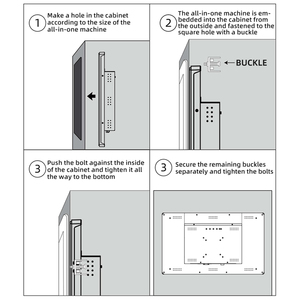Laptop Computer Use: Introduction
In today's fast-paced digital world, laptop computer use has become integral to our daily lives. Whether for work, education, or leisure, laptops provide the flexibility and functionality necessary for efficient productivity on the go. Their compact size and sophisticated technology allow users to perform a myriad of tasks anytime, anywhere. As businesses and individuals continue to embrace remote work and digital learning, understanding the various aspects of laptop use becomes increasingly vital.
Types of Laptop Computer Use
The versatility of laptop computer use can be categorized into several types, making them suitable for numerous applications:
- Business Use: Laptops are essential for professionals who require portability for meetings, presentations, and remote work. Key functions include document creation, video conferencing, and data analysis.
- Educational Use: Students leverage laptops for research, online courses, collaboration with peers, and accessing educational resources. Laptops support e-learning platforms and virtual classrooms effectively.
- Creative Use: Graphic designers, video editors, and musicians utilize powerful laptops for creating content. Specific software applications demand high-performance machines, which makes dedicated models popular in this area.
- Gaming Use: Gamers often seek laptops with advanced graphics and processing power to enjoy demanding games. Gaming laptops are designed to provide immersive experiences with high-resolution displays and fast refresh rates.
Function, Feature and Design in Laptop Computer Use
The functionality and design of laptops are crucial elements that enhance user experience during laptop computer use:
- User Interface: Most laptops come with intuitive operating systems and interfaces, making navigation simple for all users, regardless of tech proficiency.
- Portability: Laptops are built for mobility, featuring lightweight designs and slim profiles, allowing users to carry them effortlessly in bags and backpacks.
- Battery Life: Extended battery life is a common feature among modern laptops, permitting users to work or play without constant access to a power outlet.
- Connectivity Options: Many laptops include multiple ports and wireless capabilities such as Wi-Fi and Bluetooth, enabling seamless connectivity with various devices and networks.
- Ergonomic Design: Enhanced keyboard layouts and adjustable screens contribute to improved comfort, allowing for extended periods of use without strain.
Applications of Laptop Computer Use
Understanding the applications of laptop computer use helps in realizing their impact across various sectors:
- Remote Work: With the rise of telecommuting, laptops allow employees to perform tasks from any location, fostering a flexible work environment.
- Online Learning: Educational institutions increasingly rely on laptops for students to participate in online classes, complete assignments, and access digital libraries.
- Business Meetings: Laptops enable professionals to conduct meetings via video conferencing tools, share presentations, and collaborate effectively with teams scattered across different regions.
- Creative Projects: Independent artists and professionals utilize laptops for various creative endeavors, including graphic design, video editing, and music production, utilizing high-performance applications.
Conclusion
In closing, laptop computer use caters to a wide range of needs, making it an essential tool in today’s modern society. From business and education to creativity and entertainment, laptops provide the versatility, performance, and portability needed to excel in various environments. With continuous advancements in technology, understanding how to leverage these machines effectively is critical to maximizing their potential.





















































